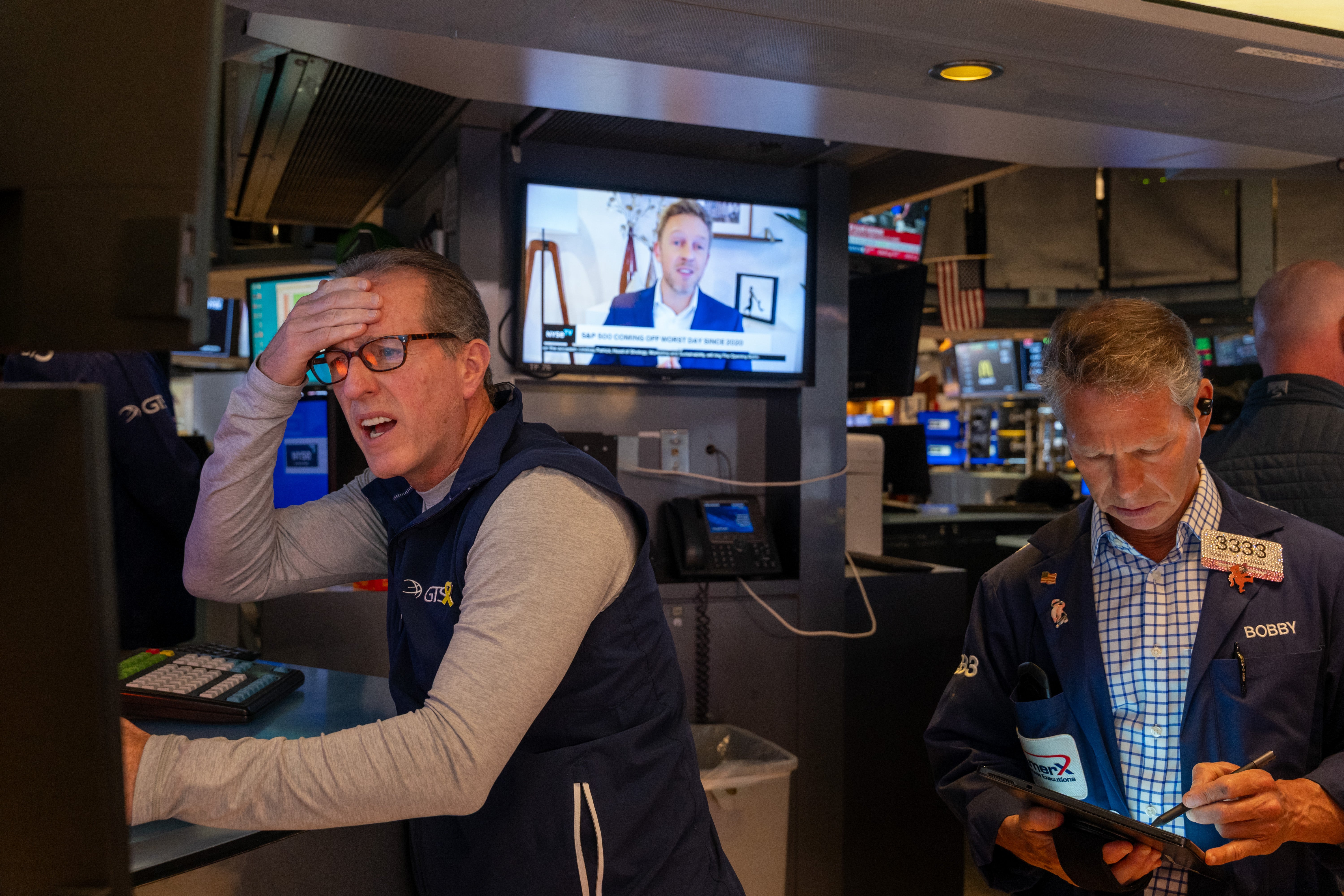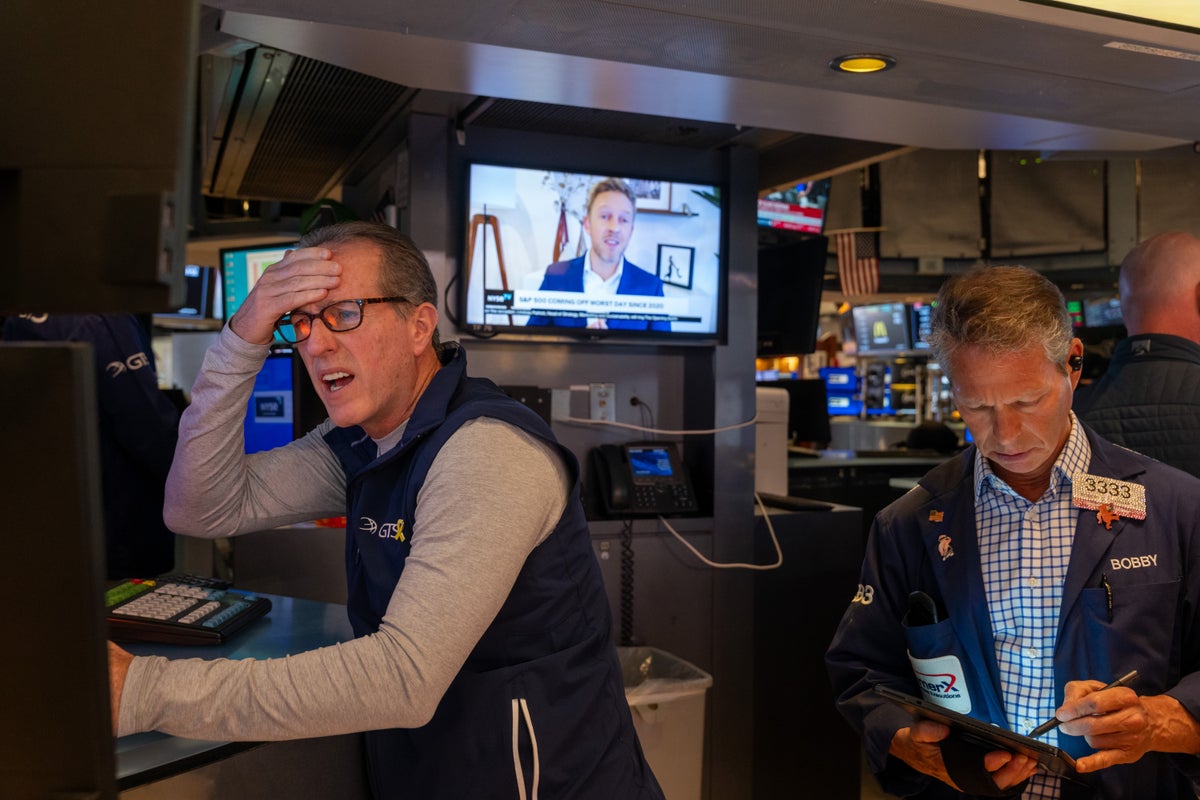It took Liz Truss 10 days after the mini-Budget to accept that her economic policy could not survive its contact with reality. It may take Donald Trump a little longer because the US economy is so powerful, and he may be better at pretending that he hasn’t reversed course, but he too will have to accept that he cannot beat the markets.
It was significant that his declaration of a global trade war on Wednesday was made at 5pm Eastern Time, after the markets had closed. The only reason for the timing was that someone in the White House had realised that, if the speech had been delivered during the day, the TV channels could have run a ticker along the bottom of the screen with live prices on Wall Street turning red.
When the markets reacted as they were bound to do, the show was over, and President Trump waved away the bad news the next time he was in front of the cameras, saying: “The markets are going to boom, the stock is going to boom, the country is going to boom.”
Does Trump actually believe that tariffs will achieve that? Or does he intend his announcement to be the opening bid in a negotiation on trade terms with China, the EU and Mexico, all of whom export far more to the US than they import from it?
Truss really did believe that cutting taxes and increasing spending, making up the difference by borrowing, would lift the British economy out of its malaise – and appeared to be stunned when the markets responded by putting up the cost of borrowing.
The crisis she faced was more severe than the reaction to Trump’s trade war: the creditworthiness of the UK was in question, and her policy was evidently unsustainable before she sacked Kwasi Kwarteng and called in Jeremy Hunt to make the U-turn.
But the same stubborn reality applies to Trump just as it applied to her. She rationalised the reaction to her unfunded tax cuts as a conspiracy against her by the Bank of England and market traders in the grip of “Treasury orthodoxy”. But the problem was not something called “the markets” that behaved like a person and had a plan to do her down.

The problem was that lots of lenders could not see how she was going to stop the runaway train of borrowing more and more, and so collectively demanded a higher interest rate to cover the risk of lending to her government.
Trump’s problem is different and not as pressing, but the logic is equally irresistible. Investors believe, because all of economic history tells us so, that tariffs raise prices and suppress growth. The falls in stock markets around the world reflect a rational assessment of the consequences of a trade war.
So the question of what Trump believes hardly matters. Yesterday, The Washington Post quoted a White House official as saying: “He’s at the peak of just not giving a fuck any more. Bad news stories? Doesn’t give a fuck. He’s going to do what he’s going to do. He’s going to do what he promised to do on the campaign trail.” That show of bravado does not mean, however, that he really will follow through with his protectionism. All it means is that he has to manage an internal audience as well as the electorate outside.
And not even he can deny reality on this scale. There is no way he can claim to have made America great again if it is in recession. That is the Trussite reality that he cannot shout down. He cares about the stock market: he used to boast about how well equities performed in his first term. But more than that, if inflation rises, the US economy shrinks and people lose their jobs, not even the great TV reality show host who defines his own reality can convince people that he is “Making America Wealthy Again”.
So my guess is that he will drop most of the tariffs, claiming to have won concessions from other countries, and that trade with them is now “fair”.
In all of this it has to be said that the UK is to him a minor detail. If his staff can work out a deal with us that he can present a win for the US, he will take it, but he is really interested in China and the EU – as well as in Mexico and Canada, the two main trading nations that did not even get a mention on the Sandwich Board of Doom that he held up in the Rose Garden.
He will do a great deal of damage to America and the world in the meantime, but it will not last. He will pretend to have delivered. He will change the subject. He will talk about a “golden dome” missile defence system protecting the whole of the US. He will keep trying to give Vladimir Putin a way to end the war in Ukraine while saving face. He will talk about closing the southern border.
He will not be forced from office within days of announcing a disastrous economic policy, as Truss was, but he will bend to reality as surely as she did.







